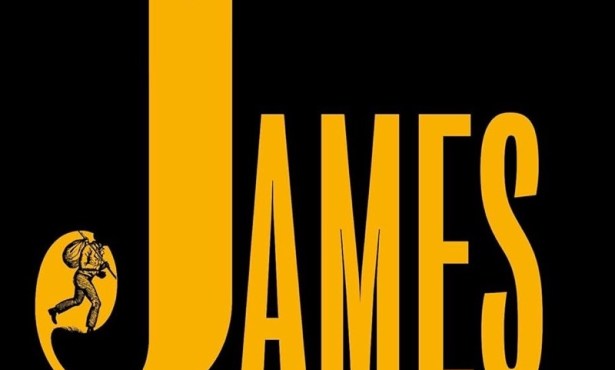Pierre Sauvage: America and the Holocaust
Award-Winning Filmmaker and Holocaust Survivor to Screen and Speak About New Documentaries
According to award-winning filmmaker and Holocaust survivor Pierre Sauvage, there are several ways of digesting the horrors of the Holocaust.
“In the Holocaust there were murderers, there were victims, there were bystanders, and there were the people who could not be bystanders — the rescuers,” Sauvage said.
It’s that last group that is explored in Sauvage’s documentaries Not Idly By — Peter Bergson, America and the Holocaust (2011) and And Crown Thy Good: Varian Fry in Marseille (2012), excerpts of which be screened at UCSB’s Campbell Hall on Tuesday, January 18 at 8:00 p.m., accompanied by a presentation by Sauvage himself.
Zeroing in on few particularly brave individuals, Sauvage will explore the American response to the Holocaust in his presentation.
“I am really honored that I have been invited to do this by the Taubman Foundation,” Sauvage said. “What I’m showing in Santa Barbara are excerpts from two films that deal with rescuers on the American scene during that time.”
Those rescuers — Peter Bergson and Varian Fry — are men whose actions sparked further interest in a subject that has always fascinated Sauvage. “I’ve always been very interested in rescuers,” Sauvage said. “I myself was born in a Christian village in France that turned itself into a refuge.”
Sauvage’s 1989 documentary Weapons of the Spirit explored that particular rescue effort, resulting in a film which received the Alfred I. duPont-Columbia University Award, among others.
In And Crown Thy Good: Varian Fry in Marseille, Sauvage examines a similarly heroic story — that of the efforts of Varian Fry.
Fry, a New York intellectual, lead the most successful private rescue effort of the Nazi era. However, Fry’s heroic efforts were opposed by American officials, as they didn’t adhere to American policy at the time. Sauvage finds Fry’s story one which highlights the curiously lackluster American response to the Holocaust.
“In the case of the Fry film, Fry died long before I began the project,” Sauvage said. “I have photos and writings [to go off of]. [However], Fry could not have done what he did without three colorful American rescuers — a beautiful heiress from the Midwest, a female art student, and a former amateur wrestler. [Those] three became close friends of mine — you end of developing a real rapport with your subjects.”
Fry’s rescues took place in the port city of Marseilles from 1940-41.
“Marseilles at that time was like the real Casablanca — Marseilles was where you hoped to leave,” Sauvage said. “It was where refugees came in the hope of getting out. That’s why Varian Fry went there and based his operation there.”
Additionally, Fry was genuine intellectual — a scholar of Latin and Greek. Sauvage noted that Fry’s intellectual prowess and the action he exhibited seemed even more extraordinary due to his place in American society.
“It’s rare that intellectuals get their hands dirty to stray that far from the ivory tower,” Sauvage said. “[However], Varian Fry is this intellectual who went to France and rescued 2,000 people, an amazing, dramatic story — why is it so obscure? These stories present that there was then, as there always are, choices.”
Fry’s short film Not Idly By — Peter Bergson, America and the Holocaust plumbs similar depths, highlighting a rarely told story which shines a light on those who simply refused to sit back and watch an atrocity happen unimpeded.
“The short that I’m going to show is the testimony of a Palestinian Jew who spent the war years trying to get American Jews to put pressure on the American government to do something,” Sauvage said. “Peter Bergson’s testimony is extremely important.”
The film further explores the reasons why not only Americans at large were at first hesitant to step in as rescuers, but also the American Jewish community.
“There are all sorts of reasons why American Jews did not respond forcefully,” Sauvage said. “What is sure is that they did know. I’m not trying to probe what happened then self-righteously [say] that we would act better today. What I find appalling is that so few people believe that we didn’t know. The truth is that we did know, and the question is why [did we not act on that knowledge earlier]?”
This, to Sauvage, is a question which begets more questions, and which makes those who refused to settle for the title of bystander even more fascinating subjects.
“What I’ve tried to do over several decades is to highlight what we can learn from the rescuers,” Sauvage said. “The rescuers are the most relevant to us. We are not likely [to be] confronted with the decision as to whether or not to be a murderer or a victim, [however] we are frequently confronted with the choice of whether or not to remain a bystander…To understand those people who could not be bystanders is extremely important to us.”
To Sauvage, the exemplary conduct of the rescuers is something which should be remembered along with the memory of the atrocities committed by the Nazis.
“You can’t perceive the darkness, if you don’t perceive that there were flashes of light here and there,” Sauvage said.



